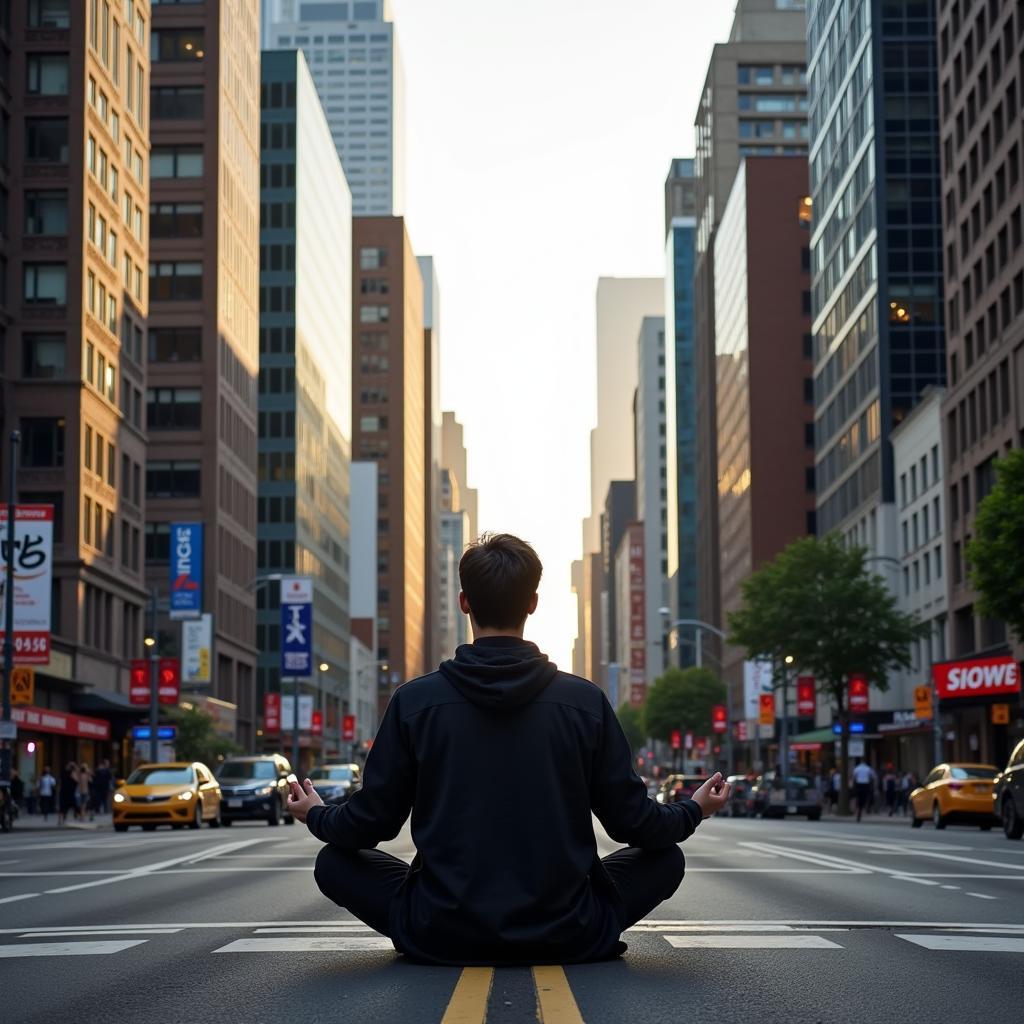The concept of a “Stoic Society” evokes images of individuals unfazed by the chaos of the modern world. But what does it truly mean to live in a stoic society, and how can this philosophy contribute to a more peaceful world? This article delves into the principles of Stoicism, examining their relevance in contemporary society and exploring how they can foster peace, both within individuals and on a global scale.
Understanding the Philosophy of a Stoic Society
Stoicism, originating in ancient Greece, emphasizes virtue, reason, and living in harmony with nature. In a stoic society, individuals strive for inner peace by accepting what they cannot control and focusing on what they can – their thoughts and actions. This doesn’t mean suppressing emotions but rather understanding and managing them constructively. It’s about finding tranquility amidst the storm, not escaping the storm itself.
After experiencing the challenges of modern society, many find solace in Stoicism. It offers a framework for navigating difficulties with resilience and wisdom. For some men, this means reevaluating their role and finding peace outside conventional societal structures. You can read more about this phenomenon in articles about men dropping out of society.
 Stoic Philosopher in the Modern World
Stoic Philosopher in the Modern World
How Stoicism Cultivates Inner Peace
The core of Stoicism revolves around self-control and acceptance. By recognizing that external events are often beyond our influence, we free ourselves from the anxieties and frustrations associated with trying to control the uncontrollable. This allows us to channel our energy into cultivating virtues like wisdom, justice, courage, and temperance, leading to greater inner peace and a more fulfilling life. It is through this inner peace that we can become agents of peace in the wider world.
Stoicism can be a powerful tool for navigating the complexities of relationships and fostering understanding. It encourages empathy and a recognition of our shared humanity. A deeper understanding of other cultures can further enhance our ability to build bridges and promote peace, a topic explored further in articles like “In Which Society Did Tolerance and Pluralism Originate?”
 Practicing Stoic Principles in Daily Life
Practicing Stoic Principles in Daily Life
Stoicism and its Impact on a Global Society
A society grounded in Stoic principles could potentially be a more peaceful one. Individuals focused on self-improvement and virtuous action are less likely to engage in conflict and more likely to contribute positively to their communities. This ripple effect can extend outwards, creating a more harmonious and cooperative global society. It involves making conscious choices that align with our values and striving to make a positive impact on the world around us.
The concept of a “stoic society” challenges us to re-evaluate our values and priorities. What kind of society do we want to create? Are our actions contributing to peace or to conflict? These are questions we must constantly ask ourselves as we strive to build a better world. For some, this might mean finding a balance between individual needs and societal expectations, perhaps even exploring alternative communities.
Can Stoicism Thrive in the Modern World?
While the principles of Stoicism were developed centuries ago, they remain remarkably relevant in our modern, fast-paced world. Stoicism offers a practical philosophy for navigating the challenges and uncertainties of contemporary life, providing tools for managing stress, building resilience, and finding meaning and purpose. This ancient philosophy continues to resonate with individuals seeking to live a more meaningful and fulfilling life. Learn more about how individuals are redefining their relationship with society in articles such as “Men Giving Up on Society”.
 Modern Stoicism and Community Building
Modern Stoicism and Community Building
Conclusion
The idea of a “stoic society” offers a compelling vision of a world where individuals prioritize inner peace, virtue, and living in harmony with others. By embracing Stoic principles, we can cultivate a more peaceful and just world, starting with ourselves and extending outwards to our communities and beyond. Building a “stoic society” requires a conscious effort to embody these principles in our daily lives.
FAQs
-
What is the core principle of Stoicism?
Focusing on what you can control (your thoughts and actions) and accepting what you cannot. -
How can Stoicism promote peace?
By fostering inner peace and encouraging virtuous actions, Stoicism reduces the likelihood of conflict. -
Is Stoicism about suppressing emotions?
No, it’s about understanding and managing emotions constructively. -
How is Stoicism relevant in the modern world?
It provides practical tools for navigating stress, building resilience, and finding meaning in a chaotic world. -
Can anyone practice Stoicism?
Yes, Stoicism is a philosophy accessible to everyone, regardless of background or belief system. -
What is a “stoic society”?
A society where individuals strive to live by Stoic principles, prioritizing virtue, reason, and living in harmony with nature. -
How can I learn more about Stoicism?
Explore resources like books, online articles, and local Stoic groups.
For further support, please contact us:
Phone: 02043854663
Email: [email protected]
Address: Khu 34, Bac Giang, 260000, Vietnam.
Our customer service team is available 24/7. Explore further articles like Gentlemen Society Extreme and Animal Allies Humane Society Photos for more diverse perspectives on society and community.